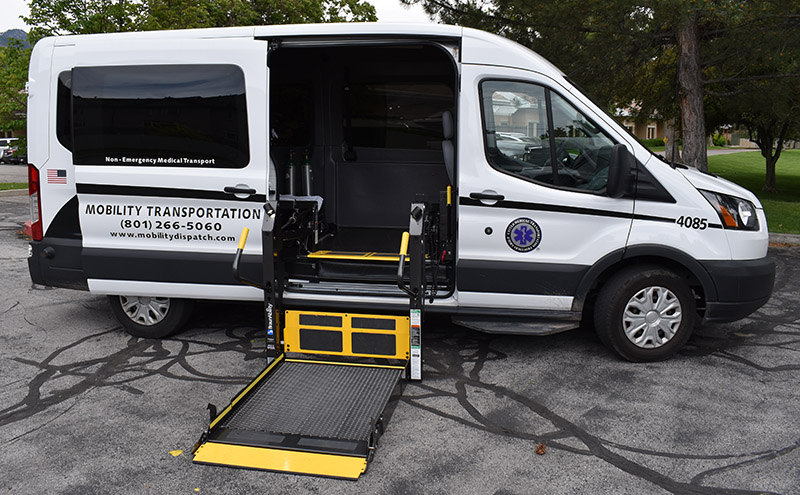Accessible Care on Wheels: Explore Medical Transportation Services Near Me
Accessible Care on Wheels: Explore Medical Transportation Services Near Me
Blog Article
Accessible and Affordable Medical Transport Options for Seamless Health And Wellness Assistance
In the realm of health care, the accessibility and price of medical transport are critical in ensuring individuals can access the treatment they need when they require it. The ability to flawlessly navigate transport choices can significantly influence a person's capability to receive timely clinical interest, follow-up treatment, and overall wellness. From non-emergency clinical transportation services to innovative remedies like telehealth, the landscape of medical transport is evolving to satisfy the varied requirements of people. Thinking about the value of this element in healthcare shipment, exploring the range of alternatives available ends up being crucial for attending to gaps in availability and price.
Non-Emergency Medical Transportation Provider

These solutions are staffed by trained experts that focus on person convenience and safety during transit. Chauffeurs are outfitted to take care of people with differing clinical demands and make sure that all trips are hassle-free and smooth - Medical Transportation Services Near Me. Furthermore, non-emergency clinical transport solutions often use specialized cars that are wheelchair-accessible, making them suitable for a variety of clients with various wheelchair needs
Volunteer Vehicle Driver Programs
Volunteer vehicle driver programs contribute in supplying transport support for people looking for non-urgent healthcare. These programs count on the generosity of volunteers that donate their time and vehicles to assist transport individuals to and from clinical consultations. By making use of volunteer vehicle drivers, organizations can supply an affordable service for individuals who might not have access to trusted transport.
One of the vital benefits of volunteer chauffeur programs is the personalized treatment and attention that people get. Unlike conventional transport services, volunteer drivers usually establish a rapport with the individuals they aid, creating a supportive and thoughtful environment throughout what can be a difficult time. Additionally, volunteer driver programs can assist bridge the space for people residing in underserved or rural locations where mass transit alternatives may be restricted.
Public Transport Options

One of the key benefits of mass transit is its prevalent availability in rural and urban locations alike. This comprehensive network permits patients from diverse histories to take a trip to clinical visits with loved one ease. Furthermore, mass transit systems are typically equipped to accommodate individuals with specials needs, giving available traveling alternatives for those with mobility difficulties.

Ride-Sharing and Transportation Network Companies
The development of contemporary transport choices for medical functions prolongs beyond standard public systems like trains and buses to include the ingenious realm of ride-sharing and transportation network companies. Ride-sharing services such as Uber and Lyft have revolutionized the means individuals take a trip to medical appointments, providing convenience and flexibility to patients who might not have accessibility to their vehicles or standard public transport. These platforms permit customers to ask for a trip with the touch of a switch on their smartphones, offering door-to-door service that can be specifically helpful for people with mobility challenges or those calling for help.
Transportation network companies (TNCs) have actually additionally played a substantial function in bridging the void in medical transportation solutions. Business like Veyo and RoundTrip specialize in non-emergency clinical transport, dealing with people who require a higher level helpful throughout their journeys to clinical facilities. By partnering with medical care providers and insurers, TNCs make sure that individuals can access timely and trusted transport solutions, inevitably adding to boosted health end results and client complete satisfaction.
Telehealth and Digital Assessments
Enhancing medical care accessibility and ease, telehealth and virtual appointments have become crucial components in contemporary clinical practices, reinventing the means individuals interact with doctor. Telehealth leverages technology to assist in remote communication in between individuals and health care professionals, supplying a wide range of solutions such as digital consultations, remote tracking, and electronic prescriptions. Virtual examinations make it possible for patients to seek medical recommendations, medical diagnosis, and treatment from the comfort of their homes, getting rid of the demand for physical brows through to healthcare facilities. This read here method not only conserves time and lowers transport costs for clients however likewise improves the general effectiveness of health care shipment.
Furthermore, telehealth plays a critical role in prolonging medical services to underserved areas, rural locations, and people with minimal mobility. By damaging down geographical barriers and enhancing health care outreach, telehealth advertises early treatment, connection of care, and individual engagement. As innovation continues to advance, telehealth is positioned to play a progressively considerable role fit the future of health care distribution, fostering enhanced wellness end results and client complete satisfaction.
Verdict

From non-emergency clinical transportation solutions to cutting-edge remedies like telehealth, the landscape of medical transportation is evolving to fulfill the varied demands of patients.Non-Emergency Medical Transportation Provider facilitate the prompt and secure transportation of individuals calling for non-urgent medical treatment to and from healthcare centers.The advancement of modern-day transportation alternatives for clinical objectives extends beyond standard public systems like trains and buses to incorporate the ingenious world of ride-sharing and transportation network firms.Transport network firms (TNCs) have actually likewise played a substantial role in bridging the void in medical transport solutions. Non-Emergency Medical Transport Providers, Volunteer Motorist Programs, Public Transport Options, Ride-Sharing click to read and Transport Network Firms, and Telehealth and Virtual Consultations all play a vital role in dealing with transportation barriers to health care access.
Report this page